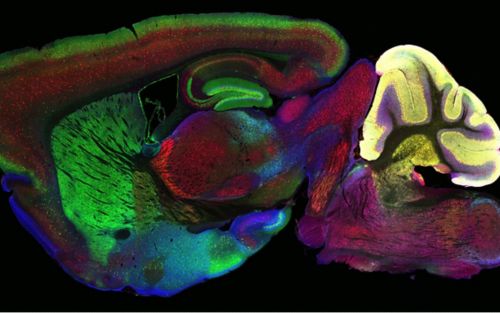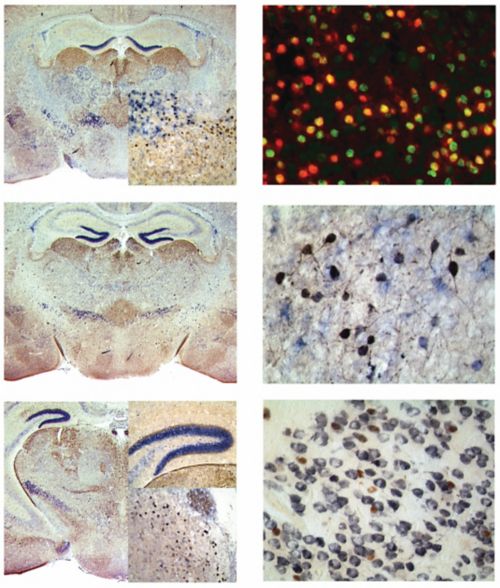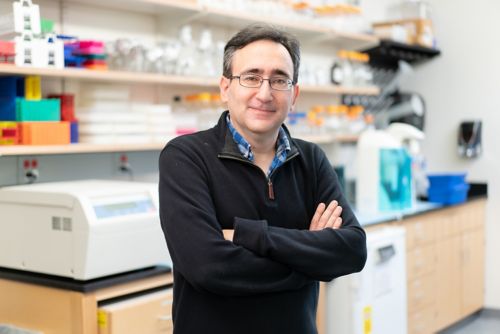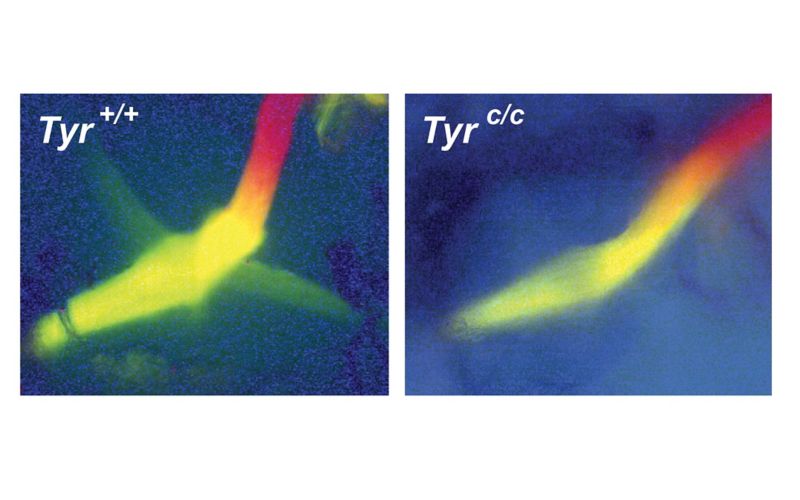St. Jude Family of Websites
Explore our cutting edge research, world-class patient care, career opportunities and more.
St. Jude Children's Research Hospital Home

- Fundraising
St. Jude Family of Websites
Explore our cutting edge research, world-class patient care, career opportunities and more.
St. Jude Children's Research Hospital Home

- Fundraising
Histology Core
Innovative program providing histology services and consultation to members of the Center for Pediatric Neurological Disease Research and the Center Without Walls
About the Core
The PTNI Histology Core offers an innovative program for providing histology services and consultation to members of the Center for Pediatric Neurological Disease Research . This core resource is focused on advanced neurobiology research, bringing together technologies and expertise that enable investigators to ask barrier-breaking questions about central nervous system development and disease. The core offers a full spectrum of services, from individual consultations for project step-up and experimental design to full-service sample processing and advanced techniques training. Protocol development will be another output of the core, ensuring that the St. Jude community has access to defined cutting-edge methodologies.

Sagittal Mouse Brain section with Calretinin (blue), Calbindin (green) and Parvalbumin (red)
Core equipment
Tissue processing and preparation
- Epredia Excelsior AS Tissue Processor capable of processing up to 220 tissue baskets simultaneously
- Leica HistoCore Arcadia Embedding Center
- Leica HistoCore AUTOCUT Rotary Microtome (x2)
- Leica VT1000S Vibratome (fixed tissue)
- Epredia HM525 NX Cryostats
- Epredia Gemini AS Slide Stainer capable of staining multiple racks of 20 slides using up to 26 different reagent stations
- Leica VT1200S Vibratome (fresh and fixed tissue)
- Leica 1950 Cryostat
Microscopy equipment
- Zeiss Stereo Microscope Stemi 508 (With Axiocam 208 color camera)
- Zeiss SteREO Discovery V12 (with Axiocam 208 color camera)
Supporting equipment
- SlideMate AS
Core capabilities
- Consultations on existing or new projects regarding techniques or reagents
- Personnel training in basic and advanced neuro-histology techniques
- Protocol development
- Antibody testing
- Morphology marker testing for spatial transcriptomics
- Probe testing
- Antibody reservoir
- Paraffin tissue processing and embedding
- Paraffin, resin, OCT, and gelatin sectioning
- Tissue sectioning for free floating immunohistochemistry
- Tissue slice sectioning for EM microscopy
- Automated tissue deparaffination
- Automated histological staining (H+E, Neutral Red, Cresyl violet, etc.)
- In some cases, hands-on sectioning, histological staining, immunohistochemistry, in situ hybridization and double immune-in situ hybridization

Double DAB immunohistochemistry (brown)/in situ (blue) for Prox1 in adult mouse brain
-
Slide activated
DiI-anterograde labeling of the optic chiasm in control and Tyrosinase-mutant mice
-
Slide activated
Astrocyte (GFAP, red) and Microglia (IBA1, green)
-
Slide activated
Mouse CerebellumPurkinje Cell (Calbindin, green) and Golgi cell (Neurogranin, red)
-
Slide activated
Blood Vessel (CD31, blue) with astrocytes (GFAP, red)and oligodendrocytes (NG2, green)
-
Slide activated
Mouse HippocampusvGLUT2 (red) VGAT (Cyan)Calbindin (green)
About the director
Dr. Alfonso Lavado received his PhD from the Spanish National Biotechnology Center where he trained in cell and molecular biology, mouse genetics, and vertebrate development with an emphasis in eye development. He continued his training in multiple neurobiology topics as a postdoctoral fellow and scientist at St. Jude under the mentorship of Dr. Guillermo Oliver and Dr. Xinwei Cao. Dr. Lavado has extensive experience and expertise in brain patterning and development, and pre- and post- natal neurogenesis. Throughout his career, he has developed an extensive catalog of working antibodies and probes for different progenitor, neuron, and glia cell populations of the brain, and refined an arsenal of histological approaches and other neuro-histology related techniques including brain region micro-dissection, ex-vivo transplantation and slice culture, and organoid processing.

Contact us
Alfonso Lavado, PhD
Research Operations Manager
Center for Pediatric Neurological Disease
MS 326, Room M3363
St. Jude Children Research Hospital
Memphis, TN, 38105-3678 USA

Memphis, TN, 38105-3678 USA GET DIRECTIONS




